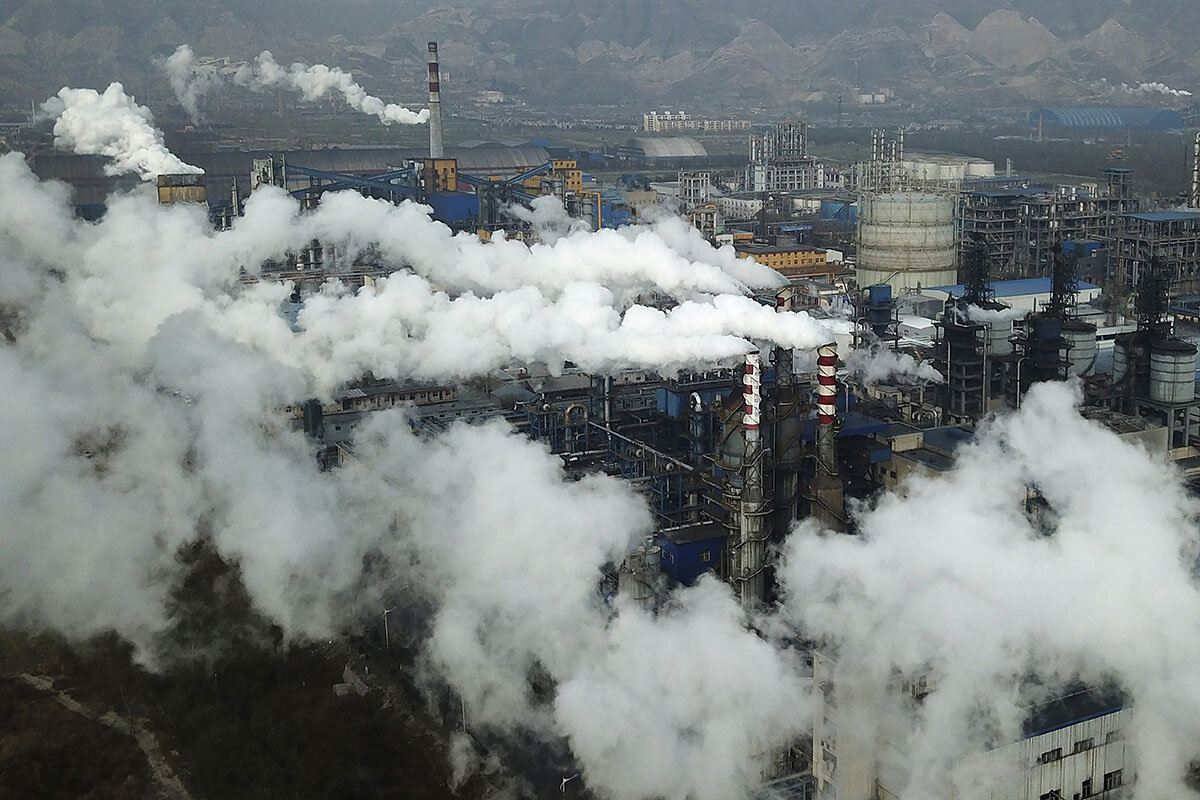Can China and America be frenemies on climate change?
Loading...
| London
Getting out of Afghanistan wasn’t just about ending a “forever war.” U.S. President Joe Biden has insisted it was essential if America was to confront the true policy challenges of today’s world – among them a rising China and climate change.
Now, just days later, he finds himself facing both of these issues at the same time. He is trying to balance a tough line on China – its autocracy at home and assertive ambitions abroad – with a bid to win Beijing’s cooperation in the fight against global warming.
How that juggling act turns out has urgent implications, not just for Washington but for the world. The most important climate change conference since the 2015 Paris Agreement is due to get underway in Glasgow, Scotland, in eight weeks’ time. It’s being billed as a make-or-break moment, and active engagement by China, by far the world’s largest carbon emitter, will be key.
Why We Wrote This
Climate change cannot be brought under control without cooperation from the world’s top two carbon emitters, China and the United States. Can they disentangle this issue from their broader rivalry?
The early signs have not been encouraging. When Mr. Biden’s climate envoy, John Kerry, made the case for climate cooperation in China last week, he was given the diplomatic equivalent of an ice bath. The top officials on his schedule “met” with him only by video link. And the message they delivered was unequivocal: that climate issues could not be divorced from overall U.S.-China ties, and that Washington is to blame for the chill in that relationship.
This could just be political theater, a high-profile reassertion of Beijing’s insistence that the 21st century will belong to China and that the influence of the United States and other Western democracies is waning. By the time of the Glasgow summit we should know how China plans to handle its own climate change juggling act, dealing with competing economic, political, and diplomatic pressures as it decides whether to adopt more ambitious carbon reduction targets.
China remains one of the few countries not to have pledged to reach “net zero” carbon emissions by 2050. It’s aiming instead for 2060. But even that goal may be hard to meet unless the Chinese cut back dramatically on coal-fired power, an issue Mr. Kerry has been driving home.
The domestic policy calculus for China is pretty clear. Its leaders are perfectly aware of the threat that global warming poses – not least to their major coastal cities as sea levels rise – and they are working hard to expand production of clean energy. China is by a wide margin the world’s biggest builder and consumer of wind power.
But the same leaders continue to make economic growth their overriding goal, and they believe coal is essential to that: last year China also built three times more coal power capacity than the rest of the world combined.
It’s the diplomatic equation, however, that will matter most in the run-up to Glasgow, the outcome of a delicate diplomatic dance between Washington and Beijing.
While Britain will be hosting the Glasgow conference, it’s the Americans who have assumed the lead role so far in pressing governments to make the clean energy commitments required for it to succeed.
They’ve seized on last month’s sobering report by the U.N.’s Intergovernmental Panel on Climate Change, and on a devastating increase in floods, droughts, wildfires, and other extreme weather events, to insist that time is running out for concerted international action. Visiting flood-ravaged areas in the U.S. this week, Mr. Biden repeated the IPCC’s warning: a “code red for humanity.”
The message Mr. Kerry carried to China last week was that “the stakes are very high. It’s not a matter of ideology or politics … it’s a matter of mathematics and physics.”
If the Americans are still holding out hope that Chinese leader Xi Jinping will make common cause with them, part of the reason may be that there is a precedent.
In Beijing in 2014, after months of quiet negotiations, Mr. Xi and Mr. Obama announced a joint climate change commitment that opened the way to global agreement at the Paris conference a year later.
Yet the bilateral atmosphere is far colder now. Political theater or not, Beijing’s treatment of Mr. Kerry reflected China’s genuine reluctance to appear to bow to U.S. pressure or to hand Washington a diplomatic victory.
China also has a substantive concern: whether America itself will stay the course on climate change, having pulled out of the Paris Agreement under Donald Trump. More immediately, Beijing may be waiting to see whether or not Mr. Biden can live up to his own pledges on climate change by navigating his $3.5 trillion budget plan, replete with climate-friendly measures, through Congress.
Still, there is one reason China might yet decide to commit to more ambitious climate targets: its own political ambition.
The “mathematics and physics,” in Mr. Kerry’s words, are no longer in doubt: there’s an international consensus that without far tighter, binding clean energy targets, there’s no way to reach Paris’ goal of keeping global warming in check.
If Beijing is looking for a way to further its burgeoning aspirations of global leadership, stepping up as a standard-bearer on an issue of such overwhelming importance to the planet might be an attractive option.







